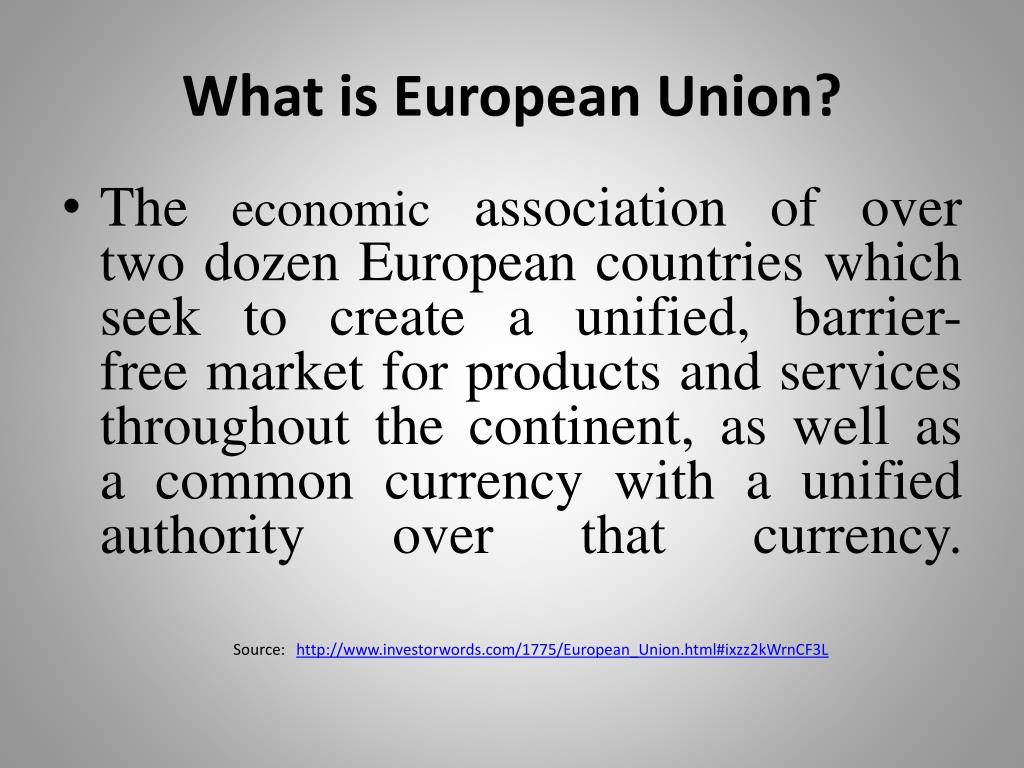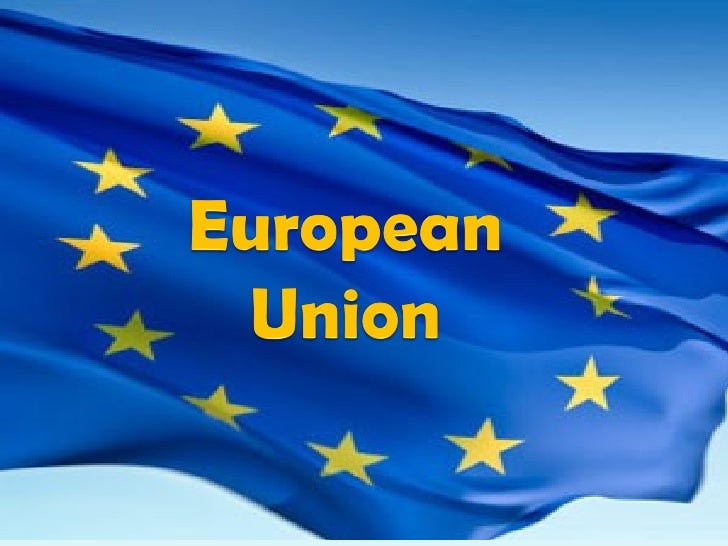Delving into the Nature of the European Union
Union born out of shared goals, the European Union (EU) presents a compelling and multifaceted organization that uniquely melds the traits of a supranational entity and an international one . Amidst the tapestry of global organizations, the EU stands apart, defying straightforward categorization.

Image: www.slideserve.com
This enigma stems from the EU’s intricate architecture, where attributes of both supranational and international organizations harmoniously coexist. On the one hand, as an international organization, the EU encompasses a voluntary membership of sovereign nations, each retaining its individual autonomy. Member states retain substantial control over their internal affairs, safeguarding their unique cultural identities and political systems.
Unveiling the Supranational Facet of the EU
Yet, the EU transcends the boundaries of a traditional international organization, embracing supranational characteristics that endow it with distinctive powers. Through mechanisms such as qualified majority voting, the EU exercises authority over a wide range of policy areas that member states have voluntarily delegated. This supranational dimension empowers the EU to enact regulations that are binding upon member states, forging a harmonized legal framework that governs diverse aspects of economic and social life.
The EU’s supranational authority manifests in its exclusive competence over certain domains, including trade policy, competition law, and monetary union. Within these realms, the EU acts as a single entity, representing the collective interests of its member states on the international stage. This supranational dimension enables the EU to negotiate trade agreements, enforce antitrust regulations, and manage the shared currency, the euro, fostering economic integration and promoting the well-being of its citizens.
A Balancing Act: Intergovernmentalism and Supranationalism
The interplay between intergovernmentalism and supranationalism lies at the heart of EU decision-making. Intergovernmentalism, rooted in the principles of sovereignty and consensus, grants member states significant influence in EU affairs. Key decisions often require unanimity among all member states, ensuring that no single country can unilaterally impose its will upon the others. This intergovernmental element serves as a bulwark against the potential encroachment of EU authority upon national sovereignty.
Supranationalism, on the other hand, empowers EU institutions, such as the European Commission and the European Parliament, to make binding decisions that member states are obligated to implement. This supranational dimension enables the EU to adopt and enforce policies that may not always align with the preferences of individual member states, prioritizing the collective interests of the Union as a whole. The dynamic interplay between intergovernmentalism and supranationalism ensures a delicate balance between national sovereignty and the pursuit of common objectives.
Adapting to a Changing World: EU Growth and Evolution
The EU has undergone a remarkable journey since its inception, navigating a path marked by growth and transformation. Initially established as the European Coal and Steel Community (ECSC) in 1951, the organization has expanded its scope and membership over time, growing from six founding members to 27 member states as of today.
This evolution reflects the EU’s ongoing adaptation to a dynamic global landscape. The organization has embraced new challenges, evolving from a primarily economic union to a comprehensive political and economic bloc. Today, the EU exercises influence in a wide array of domains, ranging from environmental protection and social policy to security and defense.

Image: www.slideshare.net
The EU: A Global Player and Advocate
The EU has emerged as a significant actor on the international stage, playing a pivotal role in global affairs. Through its collective diplomatic clout, the EU engages with international organizations, such as the United Nations, and actively participates in multilateral fora to promote its values and interests worldwide.
Furthermore, the EU has emerged as a champion of multilateralism and a rules-based international order. It actively engages in global trade negotiations, advocating for fair and open markets while upholding international norms and standards.
Tips and Expert Advice for Understanding the EU
Navigating the complexities of the EU can be a daunting task. Here are some expert tips to enhance your understanding of this multifaceted organization:
- Delve into the EU’s History: Comprehending the EU’s evolution from its humble beginnings to its current stature as a global player provides invaluable context for understanding its structure and fonctionnement.
- Decipher the Institutional Framework: Familiarize yourself with the array of EU institutions, their roles, and interrelationships. This knowledge will enable you to grasp the intricate decision-making processes within the EU.
- Stay Informed: Keep abreast of current events and policy debates surrounding the EU by following reputable news sources and engaging with experts in the field.
- Embrace Diversity: Recognize and appreciate the diversity of perspectives and interests among EU member states. This diversity is a defining characteristic of the EU and shapes its decision-making processes.
- Engage Critically: Foster a critical perspective on the EU. While acknowledging its achievements, also be mindful of its limitations and ongoing challenges. Balanced analysis will lead to a deeper understanding of the organization’s strengths and weaknesses.
Frequently Asked Questions about the European Union
Q: What are the key objectives of the EU?
A: The EU’s primary objectives include promoting peace, economic cooperation, democracy, and human rights among its member states.
Q: How is the EU governed?
A: The EU is governed through a complex system involving various institutions, including the European Council, the European Commission, and the European Parliament.
Q: What are the major challenges facing the EU?
A: Currently, the EU faces challenges such as economic inequality, Euroscepticism, and migration. However, it continuously adapts to new challenges and seeks innovative solutions.
Q: What are the benefits of EU membership?
A: Benefits of EU membership include access to the single market, free movement of people and goods, and shared agricultural and regional development policies.
Which Best Describes The European Union
Conclusion
The European Union defies simple categorization, existing as a complex amalgam of an international organization and a supranational entity. Its unique structure and decision-making processes have empowered the EU to transcend national boundaries and become a significant global actor. To fully grasp the complexities of the EU, it is imperative to understand its historical evolution, institutional framework, and the interplay between intergovernmentalism and supranationalism. By embracing diverse perspectives and engaging critically, we can delve deeper into the nature of this extraordinary organization and its multifaceted role in shaping the European and global landscape.
Are you fascinated by the European Union and keen on exploring this topic further? If so, let us know in the comment section below. Your input will help us tailor future blog posts to align with your interests and provide you with the most informative and engaging content possible.

